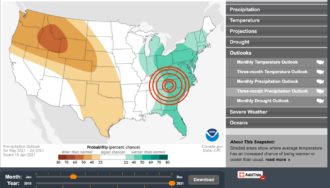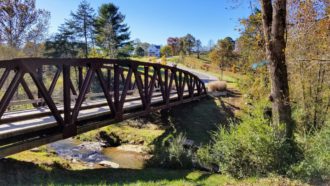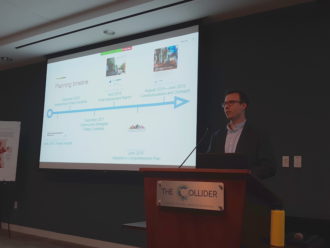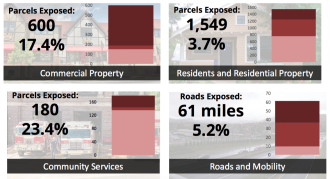Whether by hiking the debris flow pathway of a landslide or reading arcane scientific articles, Karin Rogers dedicates herself to understanding complex scientific data so she can translate that information for ordinary people to understand.


Whether by hiking the debris flow pathway of a landslide or reading arcane scientific articles, Karin Rogers dedicates herself to understanding complex scientific data so she can translate that information for ordinary people to understand.

Asheville could prosper, believes Mack Pearsall, by monetizing a unique yet little-known asset: Its federal archive of climate and weather data — the largest such collection among all the nations on Earth — curated by a local talent bank that includes several Nobel laureates and scores of climate scientists.

“Folks are really starting to get weary of the pattern of hurricanes and extreme weather and are looking for more stable environments such as Western North Carolina,” says local real estate agent John Haynes, about clients seeking to move to the region from coastal states like Florida, New Jersey and Texas.

“Building a Climate-Resilient Asheville,” debuted during a June 19 meeting of the city’s Sustainability Advisory Committee on Energy and the Environment at The Collider, focuses on practical steps individuals can take to reduce their vulnerability to extreme weather.

Resilience — a take-charge attitude that can help communities deal with the effects of climate change — dominated a forum titled “Climate and Respiratory Health — Focus Asthma” at The Collider on Nov. 9, when Jim Fox, director of the National Environmental Modeling and Analysis Center at UNC Asheville, expounded on preparing for new realities. “How do you […]

Planners with the National Environmental Modeling and Analysis Center presented a progress report on their efforts to create a climate-resiliency plan for the city of Asheville. The presentation took place on Wednesday, Nov. 16 at the Collider in the Wells Fargo building downtown.